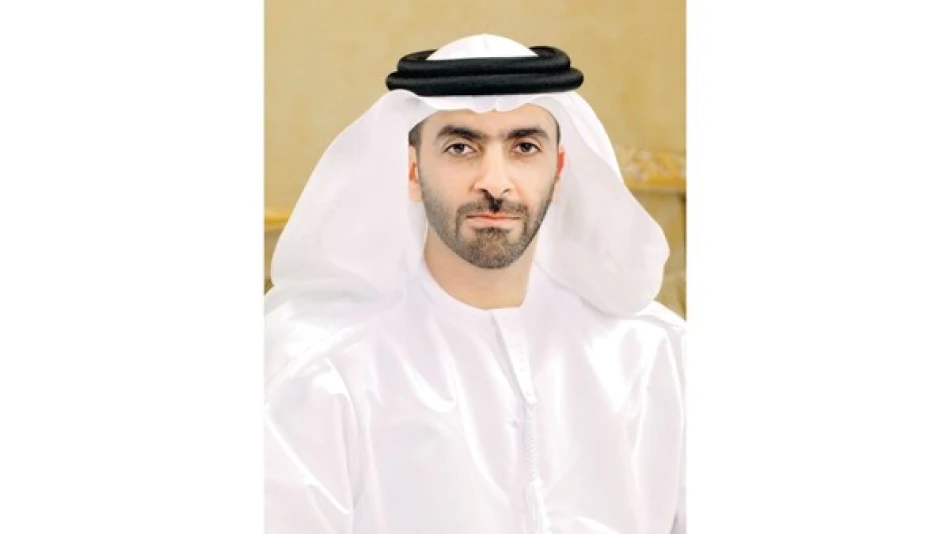
Emirati Woman's Day: UAE Vice President Honors 'Mother of the Nation' with Heartfelt Gratitude
UAE's Five-Decade Journey of Women's Empowerment Celebrated as National Achievement
The United Arab Emirates marked Emirati Women's Day with high-level recognition of a transformative 50-year journey that has positioned Emirati women as leaders across multiple sectors. Deputy Prime Minister and Minister of Interior Sheikh Saif bin Zayed Al Nahyan publicly honored Sheikh Fatima bint Mubarak, known as the "Mother of the Emirates," crediting her visionary leadership with creating a generation of empowered women who now serve as pillars of national development.
Strategic Leadership Behind Gender Empowerment
Sheikh Fatima bint Mubarak's influence extends far beyond ceremonial roles. As President of the General Women's Union, Supreme Chairwoman of the Supreme Committee for Motherhood and Childhood, and Supreme President of the Family Development Foundation, she has architected institutional frameworks that embed women's advancement into the UAE's governance structure. This multi-institutional approach represents a comprehensive strategy rarely seen in regional gender empowerment initiatives.
The 50-year timeline referenced by Sheikh Saif bin Zayed traces back to the UAE's founding in 1971, indicating that women's empowerment has been a foundational national priority rather than a recent policy addition. This long-term commitment has allowed for generational change that now produces measurable economic and social returns.
Economic Impact and Global Positioning
The UAE's approach to women's empowerment carries significant economic implications. Emirati women now hold leadership positions across science, business, and entrepreneurship sectors that directly contribute to the country's economic diversification goals. This human capital development strategy aligns with the UAE's Vision 2071, which aims to make the country the world's best nation by its centennial.
From an international competitiveness perspective, the UAE's women's empowerment record enhances its position as a regional hub for multinational corporations seeking diverse leadership pools. Companies increasingly factor gender equality metrics into location decisions for regional headquarters, making the UAE's track record a tangible economic asset.
Regional and Global Context
The UAE's women's empowerment model contrasts sharply with regional approaches while aligning with global best practices. Unlike countries that have implemented rapid policy changes with mixed results, the UAE's five-decade approach has allowed for cultural adaptation alongside institutional change. This gradualist strategy has produced sustainable outcomes that avoid the social tensions sometimes associated with rapid gender policy shifts.
The emphasis on women as "guardians of values" while simultaneously promoting their professional advancement represents a culturally sensitive approach that maintains social cohesion while driving economic progress. This balance offers a potential model for other nations seeking to advance gender equality within traditional cultural frameworks.
Institutional Sustainability and Future Outlook
The institutional embedding of women's empowerment across multiple government bodies suggests policy sustainability beyond individual leadership changes. The Supreme Committee for Motherhood and Childhood and Family Development Foundation create systematic support structures that operate independently of political cycles, ensuring continuity in women's advancement initiatives.
The designation of Emirati women as "icons inspiring the world" reflects ambitious global positioning goals. This language suggests the UAE views its women's empowerment model as an exportable soft power asset, potentially opening opportunities for international consulting and development partnerships in this sector.
The celebration's emphasis on measurable achievements across "all forums" indicates confidence in quantifiable results that can withstand international scrutiny, positioning the UAE as a regional leader in practical gender equality implementation rather than merely aspirational policy statements.
Most Viewed News

 Layla Al Mansoori
Layla Al Mansoori






